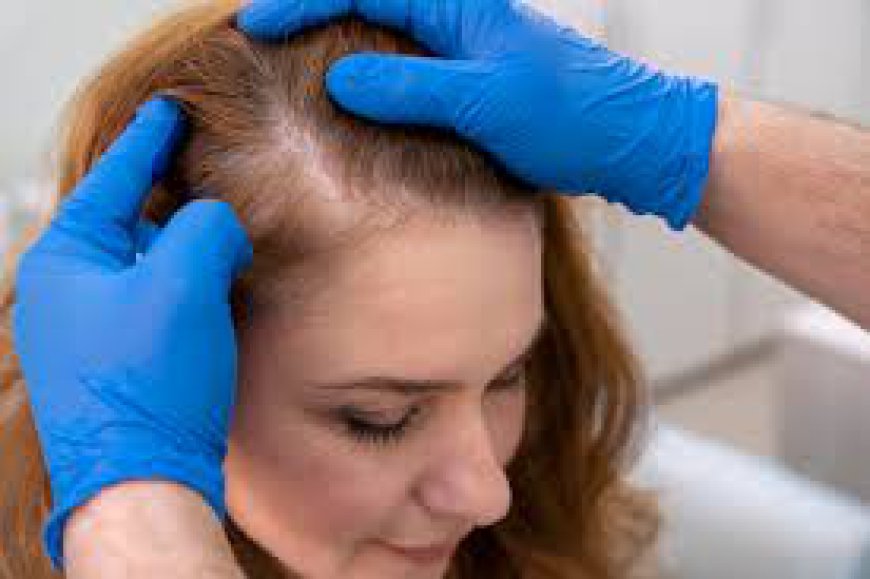Finasteride for Thinning Hair: Key Insights
Finasteride is especially recommended for people with male pattern baldness. Learn more about Finasteride for Hair Loss in Dubai and avoid baldness for good.
Thinning hair can be a distressing concern for both men and women. Whether caused by genetics, hormonal changes, or aging, hair loss can impact self-esteem and confidence. For those looking for a solution, finasteride has emerged as one of the most widely discussed treatments for thinning hair, especially in men. This article delves into the key insights about Finasteride for Hair Loss Dubai, its effectiveness, potential side effects, and its role in managing hair loss.
What is Finasteride?
Finasteride is an oral medication primarily used to treat hair loss, particularly androgenic alopecia, commonly known as male-pattern baldness. It works by inhibiting the action of an enzyme called 5-alpha reductase. This enzyme is responsible for converting testosterone into dihydrotestosterone (DHT), a hormone that is linked to hair loss in men. By reducing DHT levels, finasteride helps slow down hair loss and, in some cases, even promotes hair regrowth.
While it is FDA-approved for treating male-pattern baldness, it is also used off-label for women experiencing thinning hair, particularly after menopause. However, its effectiveness and safety for women remain less studied compared to men.
How Does Finasteride Work?
The primary cause of androgenic alopecia in men is the increased sensitivity of hair follicles to DHT. Over time, this sensitivity leads to the gradual shrinking of hair follicles and shorter hair growth cycles. The hair becomes thinner and finer, eventually leading to bald spots.
Finasteride combats this process by blocking the conversion of testosterone into DHT. With less DHT in the scalp, hair follicles are less likely to shrink, and hair growth is maintained. This can result in a reduction in hair loss and, for some, the regrowth of thicker, healthier hair. It typically takes about three to six months of consistent use to notice visible results.

Effectiveness of Finasteride
Finasteride has proven to be effective for many individuals struggling with male-pattern baldness. Clinical studies have shown that approximately 80-90% of men who take finasteride experience a halt in hair loss, while about 60% see some degree of hair regrowth. These results make finasteride one of the most reliable treatments available for men dealing with hair thinning.
However, the response to finasteride can vary. Some individuals may not see significant improvements, while others may experience robust regrowth. Additionally, the treatment works best when used in the early stages of hair loss. Those with more advanced baldness may not experience the same degree of success.
Dosage and Administration
Finasteride is typically prescribed in a 1mg daily dosage for hair loss, which is lower than the dosage used for treating benign prostatic hyperplasia (BPH) in men. It is important to take finasteride consistently to maintain its effects. Skipping doses or discontinuing the medication may lead to the reversal of progress, and hair loss may resume.
Finasteride is generally well-tolerated, but, like all medications, it is important to consult a healthcare provider before starting treatment. They can assess the appropriateness of finasteride based on individual health factors.
Side Effects and Considerations
While finasteride is effective for many, it is not without potential side effects. The most commonly reported side effects are sexual in nature, including a decreased libido, erectile dysfunction, and a reduced volume of ejaculate. These side effects are relatively rare, affecting only a small percentage of users, and may subside after discontinuing the medication.
Other potential side effects can include breast tenderness or enlargement, rash, dizziness, or headaches. More serious side effects, such as mood changes or depression, are less common but have been reported in some individuals.
It is also important to note that finasteride can cause birth defects if taken by women who are pregnant or planning to become pregnant. Therefore, it is advised that women avoid handling crushed or broken tablets.
Some users may experience what is called "post-finasteride syndrome," in which sexual side effects persist even after discontinuing the medication. While this condition is rare, it has raised concerns, and anyone experiencing prolonged side effects should consult their healthcare provider.
Is Finasteride Right for You?
Finasteride is a well-established treatment for thinning hair, but it may not be suitable for everyone. It is most effective in individuals with early to moderate hair loss, and it may not work for those with advanced baldness or extensive hair thinning.
Before starting finasteride, it is important to discuss your medical history with a healthcare provider. They can determine whether Finasteride for Hair Loss in Dubai is a suitable option based on your health, the cause of your hair loss, and other treatments that may be available.
In addition to medication, a comprehensive approach to hair loss may include lifestyle changes, dietary adjustments, or other treatments such as minoxidil or hair transplant surgery. Each treatment option has its own set of benefits and limitations, and it is essential to choose one that aligns with your personal needs and goals.
Conclusion
Finasteride remains one of the most widely used and effective treatments for thinning hair, especially for men experiencing androgenic alopecia. Its ability to slow hair loss and promote regrowth offers hope for many individuals struggling with hair thinning. However, as with any medication, it is important to weigh the benefits against potential side effects and consult a healthcare professional before starting treatment

 hudabatool778
hudabatool778